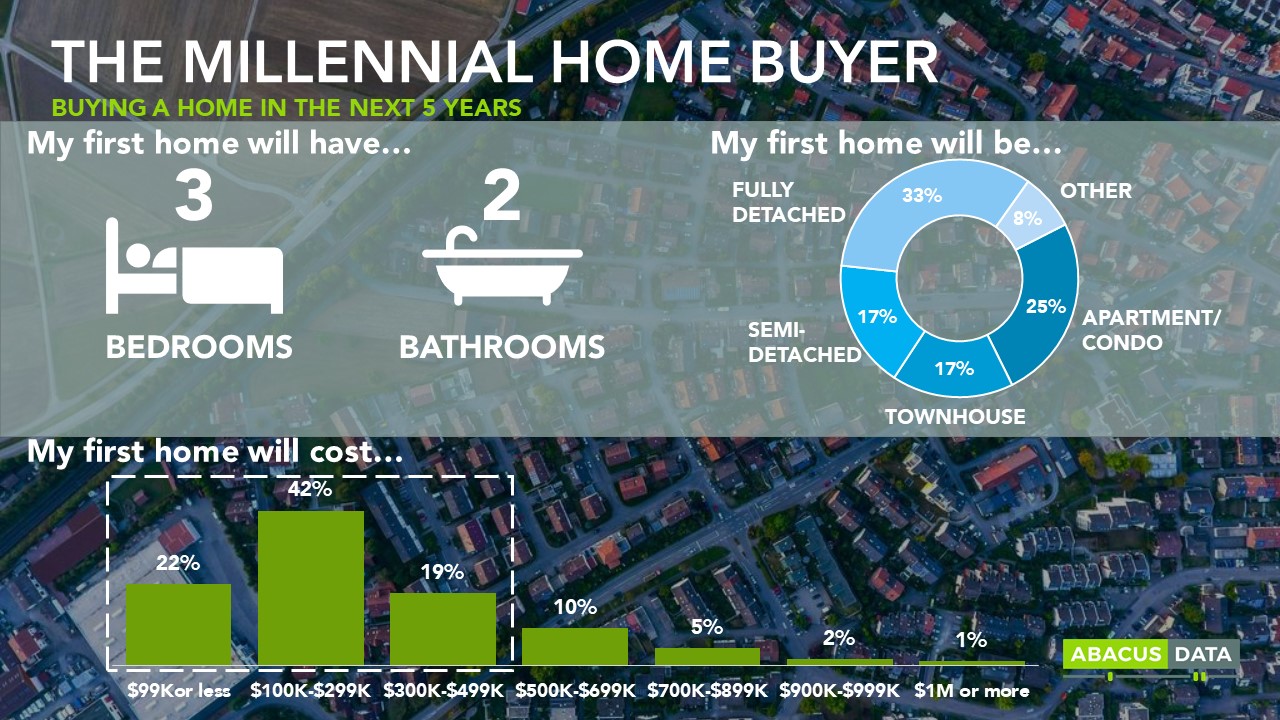Millennials: Where will they go?
December 31, 2018
As we enter into a new year, we turn our gaze to the future of the millennial generation. January 1st doesn’t just mark the beginning of another year; it marks the first time that boomers will not hold the plurality of decision-making power in a Canadian election. With the average life expectancy of Canadians hovering around 80, this year marks the first wave of millennials entering their middle-aged lives (turning 39). Many millennials have purchased a home (47%) and another 20% are renting and living with their partner. 59% are married/in civil union or are living with their partner. More and more millennials seem to be morphing into the modern versions of their boomer parents.
However, there are still persistent differences between the generations which will play out in 2019. For instance, the average household size in 1980 was approximately 4 persons – 2 parents and 2 kids. Today the average Canadian household ranges closer to 2 person – 2 partners and no kids. Millennial households also earn 35% less on average compared to what their boomer parents were earning at the same time in their lives. Few millennials have been able to find affordable housing that they can independently afford, relying on parents or government assistance to purchase their first home. Fewer millennials own cars and are opting to use public transit, bikes, or rent a car when they need to get around. If this family planning trend continues, we could see a shift in house designs from the atomic family two-car garages and deep backyards to two-person dwellings or multigenerational family homes. Affordability will also be a key component of the millennial housing market. The homes of tomorrow will have to become more affordable, or new saving and mortgaging schemes will have to be developed, to initiate the next generation of homeowners.

Although millennials make less than boomers, they save more. 38% of millennials have no consumer or student debt. Nevertheless, for the other 62% of millennials debt still looms large and an economic downturn or interest rate rise could tip many into poverty. With no secure assets like a house or car available for liquidation if times get hard, millennials may find themselves in precarious financial straits.
On the investment front, millennials are going to continue to demand that their money be invested ethically and sustainably. Millennials have turned the niche multimillion-dollar ethical investment industry into one of the fastest growing and largest investment segments. Millennials are risk-averse and would rather make slow and steady gains in quality investments than short rapid growth with the potential for large losses. Millennials want financial stability and they are fine with government intervention to ensure it. A millennial-dominated financial market will most likely not be as high growth as the boomer-dominated one; markets could anticipate modest growth with investors seeking long-term returns.
Politically, there are also differences. Top issues for boomer include healthcare, the economy, and taxes. The top issues for millennials are housing affordability, job creation, and healthcare; they also place more importance on climate change action and affordable education. Millennials are looking for a parental government – a government that will take care of them if they get in trouble, and ensure the best outcome for everyone. From personal finances to policing, national defence, the environment, and social services, millennials want to feel that the government is a social justice advocate. Millennials do not respond well to negative campaigns but prefer positive visions of the future and communitarian messages that show how Canadians will collectively be better off. Half of all millennials think that life would be better off under a socialist system, political parties need to consider this when positioning themselves in the 2019 election.
Just as their parents did before them, millennials will change how we look at the world. They are well-educated, aspirational, and young. They put great emphasis on being good stewards of the environment and good friends to their fellow human, whether they be a world away or across the street. How will the new pilots of the world tackle the big problems is to be seen, but there is no doubt that whatever way they choose it will be the millennial way.
At Abacus we strive to understand the nuances of generational change and how it impacts you and your business. The Canadian Millennials Report is the largest syndicated study of millennials in Canada. We survey 2,000 millennials twice a year on a range of topics including politics, social values, and consumer trends. If you are interested in learning more about this generation, reach out to us and we would be happy to connect.


